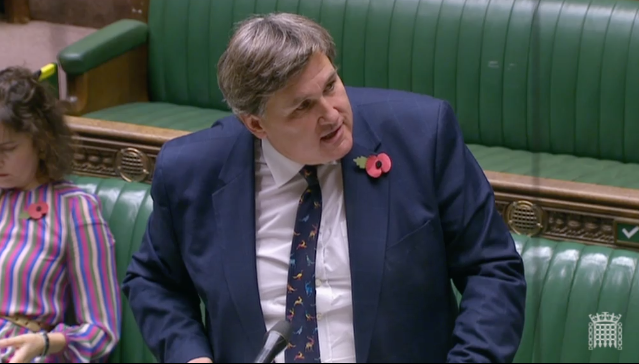Home Office ministers admits knife crime ‘is back’ amid rise in incidents in recent years
Earlier this year, figures showed knife crime in England and Wales hit a record high

Your support helps us to tell the story
From reproductive rights to climate change to Big Tech, The Independent is on the ground when the story is developing. Whether it's investigating the financials of Elon Musk's pro-Trump PAC or producing our latest documentary, 'The A Word', which shines a light on the American women fighting for reproductive rights, we know how important it is to parse out the facts from the messaging.
At such a critical moment in US history, we need reporters on the ground. Your donation allows us to keep sending journalists to speak to both sides of the story.
The Independent is trusted by Americans across the entire political spectrum. And unlike many other quality news outlets, we choose not to lock Americans out of our reporting and analysis with paywalls. We believe quality journalism should be available to everyone, paid for by those who can afford it.
Your support makes all the difference.A Home Office minister has said that despite a fall early in the last decade knife crime “is back”, in an apparent admission of the government’s failure to tackle the issue.
Figures released earlier this year showed knife crime in England and Wales hit a record high, with police recording more than 46,000 incidents in the year ending March 2020 – up six per cent on the previous 12 months.
“The latest year was 51 per cent higher than when comparable recording began in 2011 and is the highest on record,” a report by the Office for National Statistics added at the time the figures were released.
Last year, a parliamentary group suggested the rise in knife crime could be linked to austerity budget cuts that had dramatically scaled back youth services in parts of the country. Its analysis found that areas suffering the largest cuts to youth spending had seen bigger increases in knife crime.
Speaking in response to a Conservative MP, who raised the death of one of her constituents from knife crime, Kit Malthouse, the minister for crime and policing, said he had met “far too many” parents of young people who had been murdered on streets and in nightclubs.
“Back in the early part of the previous decade we thought we’d beaten knife crime, but unfortunately it is back,” he told MPs on Monday.
He added: “We need to concentrate on every aspect of this, through enforcement, to prevention, to long-term work frankly with young people which shows them that the carrying of knife is not only dangerous to others but frankly dangerous to themselves. There is a better way.”
Questioned on the issue of knife crime by Labour MP Sarah Owen and how the government intends to tackle the rise, Priti Patel, the home secretary, also said she was “fully committed” to reduce serious crime.
She added: “She is right to highlight the seriousness of the corrosiveness aspect of knife crime across society. The police have the tools and the powers to absolutely go out there and pursue those individuals who are carrying such weapons and we have the policies that we are absolutely applying by working with the police.”
Last week the National Police Chiefs’ Council (NPCC) launched Operation Sceptre aimed at targeting “habitual knife carriers” and engaging with young people and parents to highlight the risks of carrying knives.
They said knife crime offences have been rising steadily since 2013-14, but a one per cent decrease in offences involving knife crime had been recorded in the year ending June 2020 – “predominately due to coronavirus and the lockdown restrictions”
Graham McNulty, the NPCC’s deputy assistant commissioner, said: “Police forces up and down the country work tirelessly in bringing violent offenders involved in knife crime to justice.”
He added:“While the causes and drivers of knife crime are complex, early intervention and putting in place measures to tackle the root causes are absolutely essential.
“Policing plays the pivotal role in enforcement activity, but also has a role in supporting communities and local agencies to come together to prevent knife crime. By working together with our partners, we know that we can be more effective, responsive and ultimately improve people's lives.”



Join our commenting forum
Join thought-provoking conversations, follow other Independent readers and see their replies
Comments